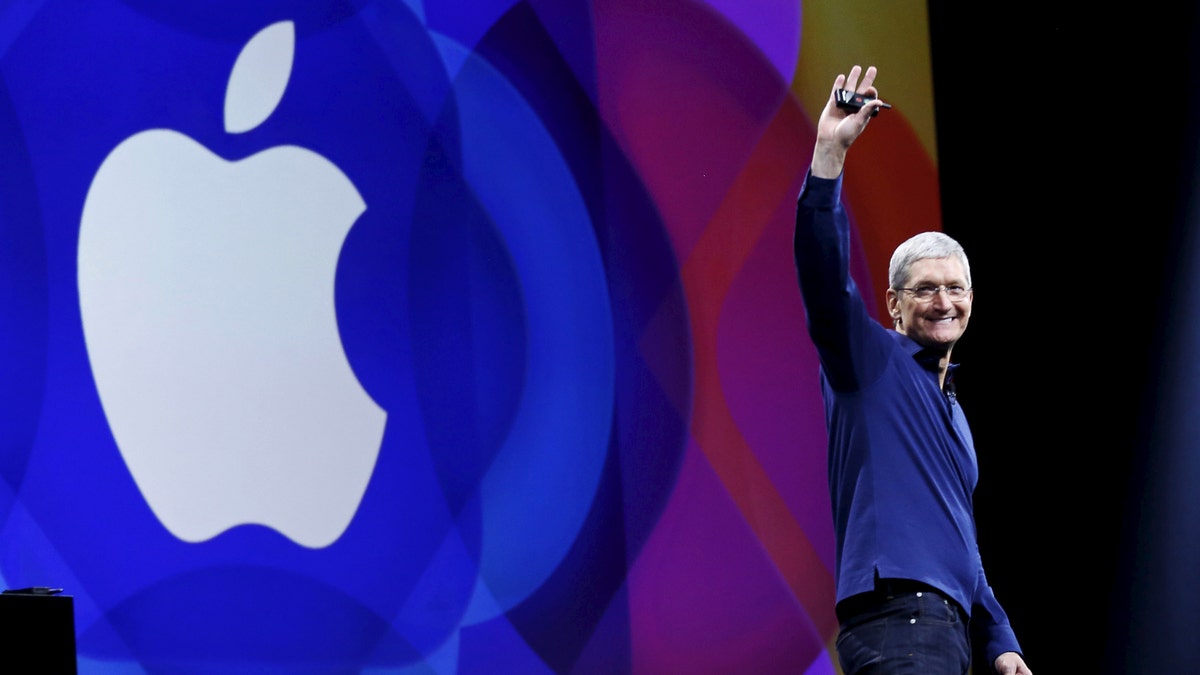
Apple CEO Tim Cook waves as he arrives on stage to deliver his keynote address at the Worldwide Developers Conference in San Francisco, California, United States June 8, 2015. (REUTERS/Robert Galbraith)
Apple earlier today filed its formal legal response laying out why it's refusing to help the FBI hack into an iPhone 5c used by one of the San Bernardino terrorists.
Not surprisingly, the arguments Apple makes to the court are essentially the same arguments it's been making in the press over the last week.
DON'T MISS:10 hidden iPhone features that'll help you get the most out of your phone
"This is not a case about one isolated iPhone," the filing begins. "Rather, this case is about the Department of Justice and the FBI seeking through the courts a dangerous power that Congress and the American people have withheld: the ability to force companies like Apple to undermine the basic security and privacy interests of hundreds of millions of individuals around the globe."
Indeed, Tim Cook himself has said that Congress, and not lawmakers, should be the ones deciding the perilous issue of mobile encryption as it pertains to issues of national security.
Speaking to this point, Apple argues that the government in this case consciously chose not to enhance its investigatory power via legislation, instead opting to have the courts do all of the dirty work. Not only that, But Apple even takes the government to task for attempting to use 'terrorism' as a catchphrase designed to play on the public's emotions.
Apple also writes that the idea that hacking into the iPhone would be just a one-time thing unique to the San Bernardino shooter's iPhone 5c is preposterous. To this end, Apple writes that the government has already filed "multiple other applications for similar orders."
With respect to the slippery slope argument that Apple has championed in recent days, the filing argues:
As to the legal basis for Apple's motion, which seeks to vacate the court's order that it must help the FBI, Apple writes that what the FBI is aiming to achieve here is unprecedented.
What's more, Apple writes that because software is akin to speech, the government shouldn't be able to compel Apple to write software it objects to.
